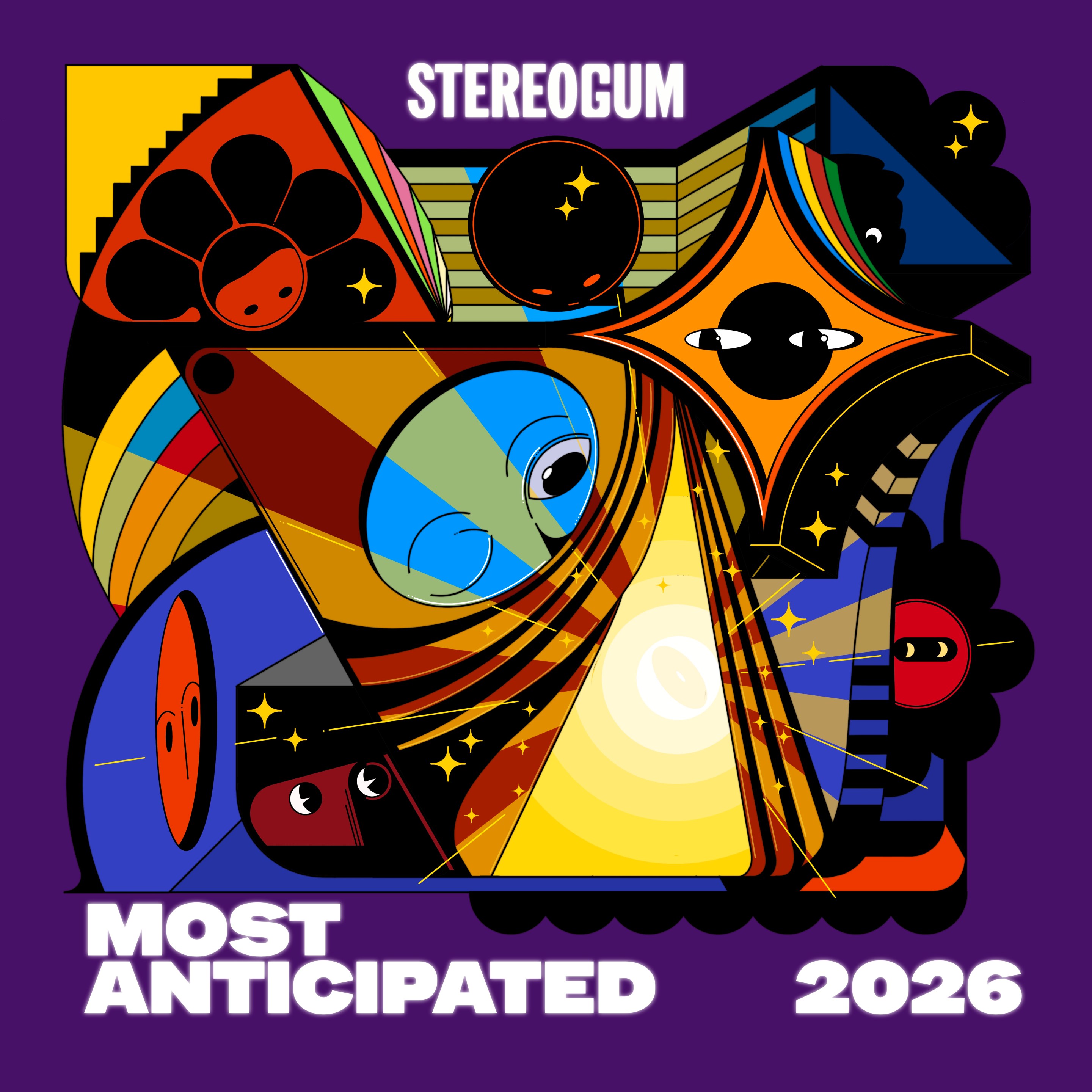Every week the Stereogum staff chooses the five best new songs of the week (the eligibility period begins and ends Thursdays right before midnight). This week's countdown is below, and you can listen to a playlist of all our 5 Best Songs on Spotify.
We've got a sprawling, insane feature coming your way Monday morning, and as such... not so many quippy thoughts about these past five days. The five best songs of the week are below.
Wednesday - "Handsome Man"
"Handsome Man" feels like getting sucked down into a vortex. It's an indie rock headbanger of the highest order from a band who is quickly becoming pretty damn confident in turning out indie rock gems of all stripes. Wednesday build on the rootsy rock of last year's I Was Trying To Describe You To Someone with a sound that's burnt-out and disaffected but invigorating. Karly Hartzman's twang has so much personality that you can't help but try to hang on to every word she sings amid the squall. And those words are wickedly evocative: "Holdin' a crossbow in a family photo/ Sending the biggest smile from Tokyo," she sings at the track's peak. "Where the wallpaper winces while you piss/ And there's a place where the kids go to kiss." Each verse is a quick snapshot, like seeing some intriguing tableau out the window of your car but it's gone before you can ever really figure out what you saw. Thankfully with "Handsome Man" we can just hit repeat. —James
Danny Brown - "Welfare"
There's never been a major rapper more convincingly unhinged than the late, great Ol' Dirty Bastard. Danny Brown has often sounded plenty unhinged himself, but on "Welfare," he fully embodies the Ol' Dirty spirit -- the gargling drawl, the cartoonish and stretched-out slurring, the playfully just-off-the-beat flow, the ad-libs where he just goes "grawawwaaaahhhhh" in the background. But it's not quite an impersonation, since the whole Danny Brown experience -- the electric-shock yips, the dirty jokes that still evoke pathos -- are immutable. At this point, Danny Brown has made four or five major pieces of work, so every Danny Brown album release is an event. But in his Bruiser Brigade clique, and in the albums they've been steadily pumping out for the last few months on Bandcamp, Brown is free to just get loose and have fun. On "Welfare," that's all he does. Over a funky lope of a beat from Portuguese producer HOLLY, Brown remembers being 26 and realizing that he had to get off welfare, and he also gets extremely fucking nasty with it. The "hit her in the ass and she started shitting" is right up there with any line about Cool Ranch Doritos in the Danny Brown lexicon. You have to take Danny Brown seriously, but Danny Brown will make sure that you don't take Danny Brown too seriously. —Tom
Vundabar - "Aphasia"
Vundabar have some hits. “Alien Blues” and “Holy Toledo,” which are rightfully their biggest tracks, resonate because of their build-ups. The sound is endlessly catchy and gets better as the songs progress. This new song “Aphasia” is slower and more modest, but it maintains their intimate, indie charm; the vocals are distinct, and the harmonies are even better. It’s an emotional summer song for nostalgic nights and reflecting on the fast nature of life: “And now I’m screaming in a stranger’s palm/ But I just can’t quiet place the feeling.” Time keeps ticking and it’s hard to keep up. “Aphasia” is a perfect song to put on for those realizations where you want things to pause but they can’t; this ballad will, at the very least, make you feel grounded for just a moment. —Danielle
Lucy Dacus - "VBS"
"In the summer of '07 I was sure I'd go to heaven/ But I was hedging my bets at VBS" -- another immersive introduction from maybe the finest storyteller in indie rock. Lucy Dacus is an expert at mining out her own personal history and connecting it back to her present self, often through thoughtful observations that communicate much more than their surface meaning. She interrogates her own experiences with both empathy and skepticism, in ways that usually allow her listeners to hear bits of themselves reflected back. Her vignette game is strong. Every little detail in "VBS," the story of Dacus' years as a zealous Christian kid at Vacation Bible School doing her damndest to save her rebellious friend, could be spun off into its own song: the "preacher in a T-shirt" who "taught me how to be a leader," the edgy rule-breaker snorting nutmeg back at the cabin. When she reaches for poetic imagery, it's vivid: "Sedentary secrets like peach pits in your gut/ Locked away like jam jars in the cellar of your heart." When she nods at philosophical questions, they're deep: "When I tell you you were born and you are here for a reason/ You are not convinced the reason is a good one." She barely has to raise her voice above a meditative tremble to convey the heaviness of these memories; her words are more than weighty enough. And when the dynamics do shift, when she pulls the trick of referencing Slayer and then cranking up the distortion for a few bars, it makes me want to close my eyes and lift my hands to the heavens. —Chris
Sharon Van Etten & Angel Olsen - "Like I Used To"
Sometimes something that seems like it could only exist in fan fiction actually happens and it blows your fucking mind. Here we have two of the most feverishly beloved songwriters in indie. Two artists who write potent, heartrending music, and two artists who have powerhouse, emotive voices. When you see that Sharon Van Etten and Angel Olsen made a song together, it comes with an automatically stratospheric level of expectations. Many collaborations couldn't live up to that, would become tangents or curiosities. "Like I Used To," instead, delivers on every shred of promise you could lobby at it. The song is Van Etten's. She was working on it and reached out to Olsen about singing on it. Now it's impossible to imagine it without the two of them together. The music itself is a yearning rush, an atmospheric and immersive track complete with Springsteen-esque guitar parts and chimes, bleary watercolor classic rock underpinnings, and one gorgeous synth burble carrying the song to its conclusion. At its core, "Like I Used To" could be an old country lament — another quality Olsen and Van Etten share is how the exact natures of their voices sometimes recall decades of the past. They render what could be classicist vibrantly though, allowing the song to move across time. Lyrically, so much of "Like I Used To" is about different versions of yourself. "Lighting one up like I used to/ Dancing all alone like I used to/ Giving it up like I used to/ Falling in love like I used to," they sing in one chorus. Each thought revolves around a conscious collapse of two different eras — returning to coping mechanisms, loneliness, romance, the whole spectrum of life viewed from who you are now and who you used to be. For much of the song, it's almost like Olsen's presence underlines that, two halves calling back at each other across the years. But when the two sing together in the chorus — and then especially in the dramatic re-reading of the title at the song's climax — that is reconciled. Two voices, halves, selves all meld, creating a song that takes your hand and lets you tumble through all your own years, too. —Ryan






